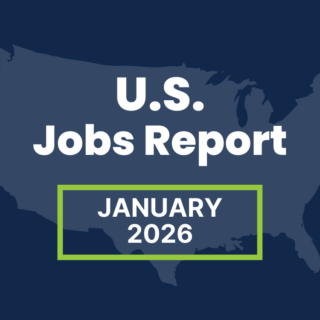Sourcing healthcare workers is increasingly challenging for leaders in the medical industry. With demographic shifts and burnout leading to turnover, healthcare talent shortages are affecting the ability of health systems to deliver high-quality care. According to McKinsey, an additional one million nursing care jobs will be added by 2031, primarily for certified nurse assistants. Yet, across the United States, colleges and universities are failing to close the gap as vacancies continue to outpace the number of graduates from relevant degree programs.
In order to boost resilience amongst this challenging talent landscape, healthcare organizations must establish an efficient method of sourcing talent. In this post, we outline how healthcare organizations can better source quality healthcare workers to avoid understaffing issues now and in the coming years.
Preparing to Source Healthcare Workers
Before a healthcare organization can adequately source healthcare workers, it must first evaluate its needs, what it can offer prospective workers and if it is prepared to make competitive offers to candidates.
Dig Deeper
How RPO Can Solve The Top Challenges In Healthcare Talent Acquisition
What qualities are you looking for in a healthcare worker?
A healthcare worker who is willing and able to perform the necessary duties associated with their position is essential, but what particular hard or soft-skills and credentials does an organization’s ideal candidate possess? Are candidates with roots in the community or region of an organization preferred? Are candidates with leadership experience or skills the best fit for a role? If an organization has a clear vision of the type of healthcare worker they want to employ, sourcing the right candidates becomes easier and less subjective.
What does your organization have to offer healthcare workers?
Healthcare organizations must also evaluate what they have to offer potential employees. An honest exploration of your employer value proposition can provide insights and help in the creation of a realistic and attractive compensation package, increase the odds that offers will be accepted and help retain candidates once they are hired.
Is your employer brand in order?
A study conducted by Healthcare Recruiters International found that over 90% of candidates think employer branding is an essential recruiting resource. Evaluation your employer brand strategy will help make a healthcare worker’s offer acceptance easier and provide assurance that they have chosen the right employer.
Sourcing the Ideal Healthcare Worker
The role of an RPO solution or internal recruiter is to source and hire top talent. However, the success of a candidate depends on whether a healthcare organization has thoroughly outlined the traits, experience and competencies of an ideal candidate for both clinical and non-clinical healthcare workers. Below, we list a few ways healthcare organizations can narrow down their ideal candidate.
Must-Have Traits & Key Responsibilities
The healthcare industry can place varied demands on workers. To ensure new hires can meet the unique challenges presented by a healthcare organization, it is essential to specify the must-have skills and traits candidates should possess. HR, management and employees currently in the same or an adjacent role should work together to compile a list of must-haves.
Traits should be a good mixture of hard and soft-skills such as a passion for work, technology proficiency, proper certifications, discipline, positive attitude and ambition. Must-haves should also cover cultural fit like traits including communication skills and shared values.
Responsibilities will vary depending on role and could include management of a team, project management, food preparation, dispensing medication and other tasks critical to the position. By outlining key tasks, a healthcare organization will not only increase the chances of making the right hire, but they will also be able to write more accurate job descriptions that attract the right talent.
Job Descriptions
An optimized job description is one of the most potent weapons in a healthcare recruiter’s arsenal. Great job descriptions tell potential hires the exact requirements of a position and decrease the number of unqualified applicants. Job descriptions should draw from must-have traits and key responsibilities to form an accurate representation of the job and who would best fit the role. Before drafting a job description, it can be helpful to gather a team of current employees who represent the best qualities of the people who currently hold the same or a similar position and ask them how they would describe their job and what it takes to be successful in their role.
Source Healthcare Workers by Referral
One of the best ways to source top-quality healthcare workers is by tapping into the professional networks of healthcare professionals. The tight healthcare labor market means more competition for talent. Demand is increasing in both acute care and community settings, including large health systems, public health organizations, tech companies moving into healthcare, travel nursing firms, long-term care facilities, the military, healthcare research, mental health agencies, insurance and managed care companies, and even other industries.
To get an edge over the competition, look to one of the unique and trustworthy sources of expertise, your employees.
An employee referral program helps a healthcare organization expand its network and gives them a ready-made talent pool. Employees have contacts with former classmates and co-workers, and their referrals are more likely to be qualified and the right cultural fits.
Post open positions in common areas, announce openings at company meetings and share growth plans with staff members, so they keep referrals top of mind. Also, make employees aware of the rewards for references such as financial compensation or other perks. If an employee referral candidate is not a good fit for the position, consider that candidate for other roles, and add it to your talent pipeline.
Source Healthcare Workers Where They Are
Meeting candidates where they are is not only an efficient way to source talent; it is also a way to improve the candidate experience. When sourcing healthcare workers, organizations should look to identify candidates’ preferred news sources, professional forums, discussion groups and social networking sites. For example, participating in and networking at industry groups, conferences and trade shows is a great way to meet healthcare professionals who may be interested in new opportunities. Healthcare organizations can also post on professional association webpages, industry journals and in local organization’s newsletters.
Plus, engage candidates on social media via recruitment marketing campaigns is a great way to sell the vision and the advantages of your organization. Effective engagement with candidates will portray an organization as an exciting and rewarding place to work and make healthcare workers want to apply to open positions whether they are passive or active candidates.
If social media is a focus ensure your application process is mobile-friendly. Many healthcare organizations have not invested in recruiting technology to help them become more mobile-friendly. Yet, 80 percent of job seekers expect to be able to conduct their job search easily on a smartphone. Optimizing the mobile experience should be a top priority for healthcare organizations to get an edge over the competition.
Engage a Healthcare RPO Provider
For some healthcare organizations, the time and resources it takes to source quality talent are prohibitive. What’s more, a healthcare company may not be able to source candidates in certain hard-to-fill positions. Vacancies in open jobs can be very costly for healthcare organizations, but more importantly, they can affect the ability to provide quality care to their patients.
RPO solution providers who specialize in healthcare recruiting can help source quality talent and develop a healthy candidate pool. A healthcare RPO provider’s networks, contacts, know-how and dedication to sourcing talent will not only help find candidates, but it will also free up time and resources for internal HR teams, allowing them to focus on other important matters.
If your organization is looking for additional ideas about sourcing healthcare workers, contact PeopleScout and ask how we can help you source and hire the best healthcare talent quickly.



